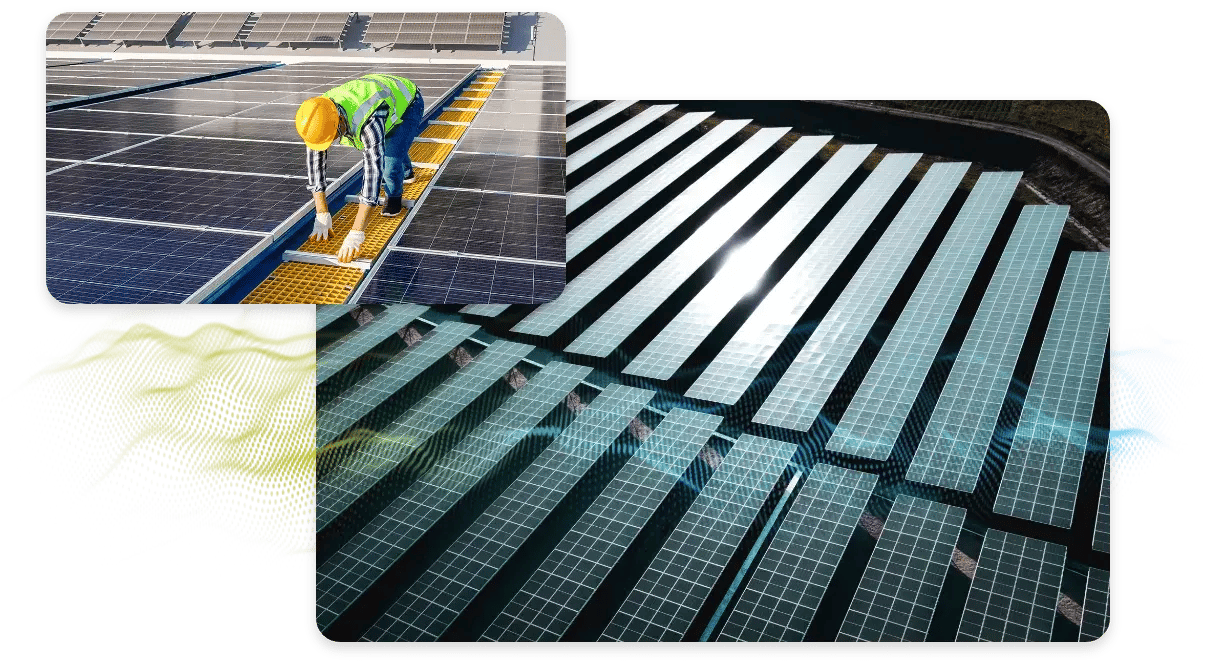Community Solar

How Community Solar Works
A local community solar project produces clean, renewable energy each month.
As solar power enters the power grid, the number of kilowatts are recorded by the local utility.
The utility then allocates the financial benefits from the electricity production to each off-takers’ utility bill in the form of a line-item credit.
For instance, if you receive $10,000 worth of credits on your utility bill in the month of August, and you’ve agreed to buy those credits at a 15% discount to their value, your net benefit for the month is $1,500.
Titan Energy is not a developer. We work on your behalf to navigate the community solar options that make sense for your team. We are agnostic in the process.

Benefits
- Receive discounted credits, saving 10 to 25% on energy costs
- Meet sustainability goals by purchasing renewable energy
- Support local solar projects in your utility zone
- Proven energy cost savings opportunity

Why Titan Energy is a Great Partner for you
Choosing the right onsite generation technology for your facility can feel overwhelming—but that’s where Titan Energy comes in. We specialize in simplifying the process for municipalities, commercial and industrial businesses, nonprofits, and educational institutions. With extensive expertise in Power Purchase Agreement (PPA) negotiations, asset ownership, development, and professional bid services across a spectrum of technologies, including solar, fuel cells, and combined heat and power (CHP). At Titan Energy, we ensure you find the ideal solution to meet your energy and financial goals.
Trust in our independence
We recognize that while the push for clean energy technology is strong, it often comes with uncertainty—especially regarding costs. That’s why Titan Energy offers “at-risk” bid services, meaning we are only compensated for successful project delivery by the selected developer, not the customer. As a truly vendor-agnostic partner, our focus is on evaluating your site, assessing proposals from commercial solar contractors, and facilitating the development of a project that maximizes value for you.
Frequently Asked Questions
No. The developer builds and maintains the panels on a nearby solar farm. You do not have to install solar panels on your property.
Currently, there are programs in Maine, New York, Massachusetts, Illinois, and Connecticut. We help present energy procurement opportunities for your team.
Your building is allocated a percentage of the community solar project. Your electricity utility account earns dollar-credits as the community solar project generates power. In turn, you pay the developer a discounted rate for those credits. For example, let’s say your portion of the array generates $100,000 worth of electricity. If your discount rate is 10%, you receive a credit of $100,000 on your utility bill and pay the solar owner $90,000. Your savings equals $10,000.
Yes. The developer will send you a monthly statement with an invoice for your building’s allocation. The building will also receive a regular electric bill where you will find the credits earned from the community solar program.
Yes. Your purchases are directly traceable to a specific solar asset and help support the development of a renewable energy asset just as if it was located on your roof.
The range of discounts we are seeing in the market are between 10 and 25%.
Zero. You begin paying for credits after the credits begin to flow to your utility bill.
Not necessarily. Single large meters are ideal for tracking and accounting purposes, but we can work with a larger number of meters.
The bid process itself usually takes about 3 to 4 weeks. Your credits will begin to flow when the solar project is commissioned by the utility, and that timeframe depends on where the developer is in their construction process.
Zero issue – you can walk at any time without any fees due to Titan Energy.
No, you could elect to have a fixed price for your credit. The appropriateness of the choice is something we should discuss with your budgeting needs in mind.
